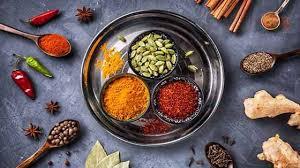Like otherancient civilizations, India too has a traditional system of healing that places much emphasis on nature and its bounty of benefits for us. Ayurveda, or the traditional knowledge of healing finds its roots in ancient Indian texts that describes the essence of knowledge being passed down from the idea of universal consciousness (Brahma) to the sages who then compiled them.
The Hindu God Dhanvantari who was the physician of the Gods is supposed to have conveyed the knowledge of Ayurveda to mankind. Notably, the Vedas, Charak Samhita and the Sushrut Samhitaportray in details the intricate relationship between human beings and nature, the various types of plants and herbs which possess medicinal properties and also how we live in close cooperation and harmony with our cosmic surroundings. Indeed, Hinduism places a lot of emphasis on the cosmic force and the forces of nature and also illuminates that just as sickness is a part of our lives, so is healing.

Even though ages have passed and India has witnessed events that ranged from rampant attacks from invading forces to brutal colonialism, the traditions have survived and even now Indians do engage in ayurvedic healing on a mass scale which has been proved quite resourceful. While some criticize it as pseudo-science, research exhibits a contrary idea where ayurvedic healing has gone a long way in not only alleviating people out of sickness but has also contributed to keeping them healthy in tandem with nature. The main focus of Ayurveda is harmony with nature and the use of natural substances which are proven to contain medicinal properties. Focussing on the regular practice known as Dinacharya and practices pertaining to the seasonsRitucharya, Ayurveda is a complete system of warding off diseases while simultaneously building immunity emphasizing a holistic approach. Similar to the indigenous traditions in Latin America, Ayurveda has time and again proved to be a very viable alternative knowledge of healing. During this time of such an unprecedented crisis on all of humanity, it would be worthy to look into our tradition for cures which will enable us to boost our immunity and protect us from this dreaded syndrome. Of course, ayurvedic healing also demands patience and regular use of such cures in order to boost one’s immunity, therefore calling for discipline.
Some suggested Ayurvedic methods to fight back the Coronavirus.
- Drinking warm water throughout the day will not only aid in soothing the throat but may be able to deactivate the dreaded virus and flush it down to the gut, where the digestive acids may aid in destroying it completely.
- Consume food which has high spice content, advanced research has already exhibited that a diet that is based on the liberal use of spices such as turmeric, coriander, cloves, ginger, and cumin may aid in the gradual development of immunity.
- Prepare and drink a decoction popularly known as Kadha (a certain herbal drink). It is prepared using the following items: Holy Basil leaves, Ginger, Cloves, Cinnamon, Salt, and Black Pepper. Crush them together and boil till it achieves the texture of syrup, add a bit of salt and some sweetener such as sugar, or jaggery and consume it twice a day. All the above mentioned medicinal herbs are known to fight off inflammation and boost immunity over a period of time.
- Indians are well known for their fascination with tea and one may consume herbal and organic tea in addition to ginger, cinnamon, lemon, and cloves to gradually build up immunity in addition to relishing a refreshing drink.
- One may also consume a diet high in lean proteins, dairy products, and with a liberal content of vitamin C mostly found in citrus fruits.
- Have a glass of turmeric milk every day. Add turmeric powder to a glass of milk and stir it till it assumes a uniform texture, add sugar if required and on regular consumption, it may aid in warding off infections.
- In case of cough engage in steam inhalation with added caraway seeds, cloves, and mint leaves which will clear out the trachea and also help in breathing easily. In addition to that one may also add crushed ginger and cloves to a teaspoon of honey and consume it twice a day to relieve the throat and fight back infections. Chewing a piece of ginger or cloves will also enable us to suppress cough and clear out the trachea.
- Warm baths with Indian lilac, eucalyptus, and rosemary leaves, or with bathing salts may also be a good way to relieve a person from stress, additionally, it also helps in clearing the body of toxins.
- Before sleeping one may also apply a concoction of mustard or olive oil (one may also add crushed garlic to it) to the chest, soles of the feet, and back. Oils are known to induce sleep and also protect the body from infections. Regular application will certainly aid especially those who are aged.
- Ayurveda also lays emphasis on the purity of mind as it believes that a healthy body cannot be devoid of a healthy mind, therefore the regular practice of Yoga, engaging in spiritual activity, and thinking positively is encouraged.
Of course, ancient texts on Ayurveda are elaborate and it would be difficult to condense them, however, I have attempted to make it as lucid as possible. It should be again reiterated that ayurvedic cures are not magical in nature and it requires discipline, belief and time to gradually improve one’s health and spiritual steadfastness. Nevertheless, these cures will certainly enable people to incrementally boost their immunity and become less dependent on expensive medicines over a period of time.
If one visits India, one may observe how the common people engage in such practices on a regular basis and may be fascinated by the fact that till date people practice Ayurveda on a practical and daily basis; espoused by a faith that survived civilizational clashes since time immemorial.

Dr. Arnab Chakrabarty Guest Lecturer Department of International Relations, Sikkim University, Sikkim, India.


